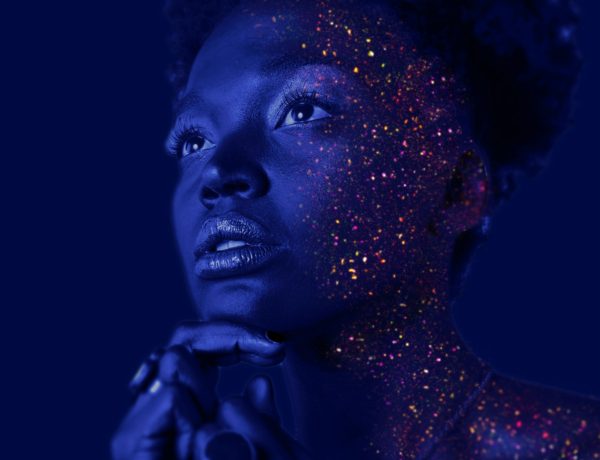This week I had a conversation that took me back to a piece I wrote last year, which was truly the beginning stages of the creation of Put In Black. I simply didn’t know it at the time. In this letter, I have shared below, I explained the findings of research I completed during my training to become a psychologist, and I did so in a manner that allowed me to express the heart part of that work. Though I have grown in many ways since I completed the research that was the foundation of the letter, and I have learned much more about my community and the factors that contribute to our relationships with one another, it continues to serve its purpose. It is a conversation starter. It is a source of validation. It is a challenge to go deeper into this conversation, explore more about our relationships with ourselves and others, and to lead with love because we need it.
Dear Reader,
Black women, you were my motivation to begin writing this letter. You were my inspiration to complete it after many attempts to find the words to convey the depth of my love and concern for our communities. I have struggled to write this for over a year after completing my dissertation, which is the basis for the forthcoming information. I was unsure of how best to capture your attention, and hold it, as I wrote about information that has been shared many times, in various ways. Throughout the time I spent searching for the words to use, I realized that this letter is not only for you. It is just as much for Black men as it is for Black women, and for anyone willing to listen and read. It is meant to provide a sense of validation and empowerment for those who connect with it most, and to invite and educate those who are less familiar with this conversation. My hope is that these words reach you in a way that they have not before, because this conversation is a crucial factor in the growth and health of our communities. Please understand that I know this topic is filled with complexity and nuances that cannot be held in the words I have written.
Black women can’t find a good man. A well-known narrative, that infiltrates the minds of Black women who live in the U.S. Regardless of ethnicity, social class, and marital status, most Black women can identify with, or at the very least understand this deeply embedded narrative. It is the core of nearly every popular Black television show, the muse behind the chorus in a powerful ballad, and the story uttered from the lips of Black women across the U.S. Popular culture aside, the statement “Black women can’t find a good man,” is supported by facts. It is not a state of mind or a thing to be fixed by simply opting to date other races, or using other countries as a reference point to prove that the sex ratio imbalance among Black people in our country does not exist. It is not shameful to prefer to date a Black man, and it goes beyond whether or not women have checklists in mind as they consider potential romantic partners. This narrative is hurting our communities. It is playing out in the way we interact with one another, the way our children view relationships, and it reveals itself in our psychological and physical health. I recognize that some women do not want to be in a relationship and that beautiful, healthy romantic relationships exist between Black people. However, this information applies to our communities as a collective rather than to each individual.
In the U.S., there is a sex ratio imbalance in Black communities in which the number of eligible women exceeds the number of available men, and studies show that it has been this way for decades (Childs, 2005; Ferguson, Quinn, Eng, & Sandelowski, 2006; Guttentag & Secord, 1983; Stackman, Reviere, & Medley, 2016). Although women of other races can relate to the difficulty of finding a romantic partner, the sex ratio imbalance appears to be most significant in Black communities. For example, the proportion of adults who have never married has doubled since the 1960s among White and Hispanic individuals; however, among Blacks over the age of 25, the figure has quadrupled from 9% to 36% (Wang & Parker, 2014). Many factors rooted in the foundation of our society have contributed to this imbalance, including the various forms of the oppression of Black men, like high incarceration and low employment rates. Black people, specifically African Americans, are one of the most disadvantaged groups in the country when considering healthcare, incarceration, employment and education. According to the Center for Disease Control (CDC), in 2015 African Americans were more likely to die at all ages under 65 years of age, from all causes when compared to White Americans. Additionally, 33% of Black men can expect to go to prison in their lifetime (The sentencing Project, 2013). These are symptoms of the systemic forces that contribute to poorer health outcomes for Black people in the U.S. Romantic partnership among Black people is inevitably connected to these trends, as well as Black women’s hope of finding a partner if she prefers to be with a Black man.
Numerous health benefits have been associated with romantic partnership, and most research related to romantic partnership has covered marital relationships. To illustrate, one study revealed that people in marital relationships report fewer problems related to mental health, engage in healthy exercise habits and less problematic drinking behavior, and seek medical attention more often when necessary (Markey, Markey, & Gray, 2007). So, the question must be asked, what does this mean for a group whose potential for romantic partnership is severely disadvantaged?
For my dissertation, I completed a study that examined the relationship between 128 young adult Black women’s perception of a shortage of Black men, and their psychosocial functioning. Essentially I was asking, “What happens when heterosexual Black women think there are not enough Black men for them to date?” One of the most significant findings was that we are turning our pain and disappointment inward. Black women who had a greater perception of a shortage of Black men, were more likely to report experiencing depressive symptoms. Furthermore, the relationship between the perceived shortage of Black men and symptoms of depression remained even when accounting for earlier depressive symptoms that were measured when the women were teenagers. The perception of a shortage of Black men was actually a stronger predictor for later depressive symptoms, than the depressive symptoms from when the women were teenagers.
This connection between perceived shortage of men and symptoms of depression may be unsurprising to many. However, it is worth noting that this appears to be the first time that we are going beyond the narrative of “Black women can’t find a good man,” and measuring how it is expressed in Black women’s health. The impact of the lack of Black men is real, and it is manifesting in our bodies, the way that we feel about ourselves, and the way we view the world.
As a Black woman, I feel it is important to say that this information does not have to leave us feeling hopeless. I have shared these findings with several Black women, and understandably, some feel disheartened. It confirms something that we do not want to believe is true. It hurts. It also shows the importance of recognizing that this conversation is important and it goes beyond simply having a man or not. I have found strength in learning about the complexity of the relationships between Black men and women in this country. There is tremendous power that comes with awareness, education, and validation. Simply knowing that the disparity between Black men and women is not specific to any one type of woman, one city, or one college campus may help Black women feel less isolated in this aspect of our womanhood. The power comes when we make time to understand and discuss why available heterosexual Black women outnumber available heterosexual Black men, when we find ways to support one another, and identify resources outside our romantic relationships. Regardless of relationship status, it is necessary to find people and things that feed our minds and fuel our souls as we grow and increase our awareness of the factors that contribute to our uniqueness and beauty.
Respectfully and lovingly,
Cortney Beasley, Psy.D.

Featured Image: Pixabay




